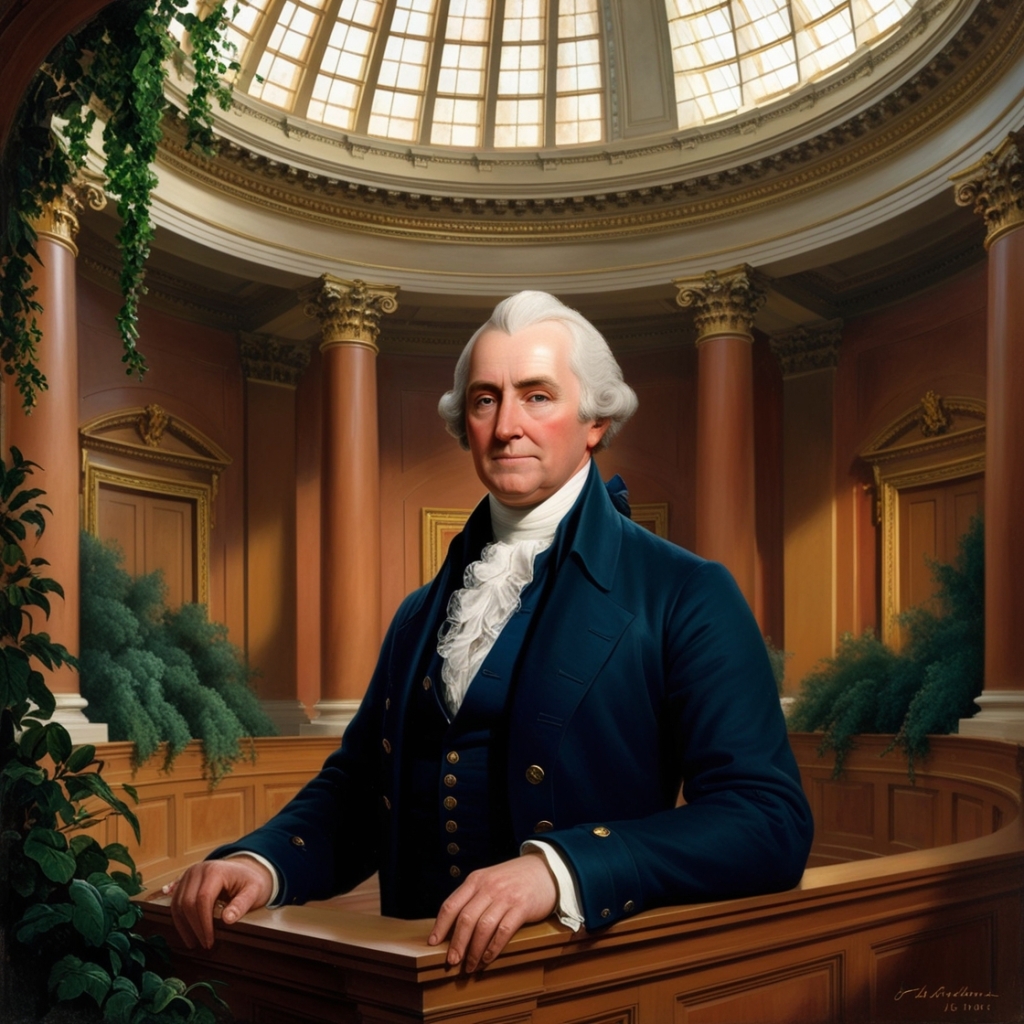John Quincy Adams, the sixth President of the United States, is a figure of immense historical significance whose political career and dedication to public service left a lasting impact on the nation. Born on July 11, 1767, in Braintree, Massachusetts, Adams was the son of John Adams, the second President of the United States, and Abigail Adams, a formidable political thinker in her own right. His upbringing in a politically active family set the stage for a life deeply intertwined with the nation’s development.
Early Life and Education

Adams’ early years were marked by a robust education and exposure to international diplomacy. At the age of ten, he accompanied his father to Europe during the American Revolutionary War. This early exposure to diplomacy and politics was crucial in shaping his future career. He studied at prestigious institutions such as Leiden University in the Netherlands and later attended Harvard College, where he graduated in 1787.
Diplomatic Career
https://www.paypal.com/paypalme/Historicalexplorer
Before ascending to the presidency, Adams had an extensive diplomatic career. His fluency in multiple languages and deep understanding of European politics made him an invaluable asset to the young nation. In 1794, President George Washington appointed him as the U.S. Minister to the Netherlands. His diplomatic acumen was further recognized when he served as Minister to Prussia under his father’s administration.
Adams’ most notable diplomatic achievement came during his tenure as Minister to Russia, where he played a critical role in negotiating the Treaty of Ghent in 1814, which ended the War of 1812. His success in these roles underscored his adeptness at navigating complex international landscapes, earning him respect and credibility on the global stage.
Secretary of State
In 1817, Adams was appointed Secretary of State by President James Monroe, a position he held until 1825. His tenure is often regarded as one of the most effective in American history. He was instrumental in formulating the Monroe Doctrine, a cornerstone of American foreign policy that opposed European colonialism in the Americas. This doctrine not only asserted the United States’ influence in the Western Hemisphere but also laid the groundwork for its future foreign policy strategies.
Adams also played a significant role in the acquisition of Florida from Spain through the Adams-Onís Treaty of 1819. This treaty not only expanded the territory of the United States but also settled longstanding border disputes with Spain, contributing to the nation’s growth and stability.
Presidency (1825-1829)
John Quincy Adams was elected as the sixth President of the United States in 1824 in a contentious election that was decided by the House of Representatives. His presidency, however, was marked by political strife and opposition, primarily from supporters of Andrew Jackson, whom he had defeated in the election. Despite these challenges, Adams pursued an ambitious agenda focused on modernization and national development.
Adams was a visionary leader who advocated for a strong federal government role in the nation’s development. He proposed extensive infrastructure projects, including the construction of roads, canals, and a national university. Although many of his proposals were not realized due to political opposition, his vision set the stage for future developments in American infrastructure and education.
Post-Presidency and Congressional Career
After losing the presidential election to Andrew Jackson in 1828, Adams did not retire from public life. Instead, he embarked on a remarkable career in the House of Representatives, where he served from 1831 until his death in 1848. During this period, Adams emerged as a fierce advocate for abolition and civil rights, earning him the nickname “Old Man Eloquent” for his passionate and articulate speeches.
Adams was a staunch opponent of slavery, and he used his position to fight against the institution at every turn. He was instrumental in repealing the “gag rule,” which had prevented the discussion of anti-slavery petitions in Congress. His unwavering commitment to justice and equality left an indelible mark on the nation’s legislative history.

Legacy and Impact
John Quincy Adams’ legacy is multifaceted, reflecting his contributions as a diplomat, statesman, and advocate for human rights. His visionary policies and relentless pursuit of justice have left a lasting impact on the United States. His role in shaping American foreign policy, advocating for national development, and championing civil rights underscores the breadth of his contributions to the nation.
Adams’ life of public service serves as a testament to the power of dedication and integrity in political leadership. His commitment to the principles of liberty, justice, and national progress continues to inspire future generations of leaders.
Presidency (1825-1829) Continued
During his presidency, John Quincy Adams faced significant challenges, including political opposition and a divided Congress. Despite these obstacles, Adams remained steadfast in his commitment to progressive policies, including his stance on slavery and civil rights. Although he was unable to enact major legislative reforms during his single term, his advocacy for abolition and civil rights laid the groundwork for future advancements in these areas.
Adams’ presidency coincided with a period of growing tensions over the issue of slavery in the United States. While he did not achieve major legislative victories on this front, his personal beliefs and public statements reflected a strong opposition to slavery. He viewed slavery as morally reprehensible and incompatible with the principles of liberty and equality upon which the nation was founded.
Post-Presidency and Congressional Career
After leaving the presidency, Adams returned to Massachusetts and was elected to the House of Representatives in 1830. His tenure in Congress from 1831 until his death in 1848 is particularly notable for his relentless advocacy for abolition and civil rights.
Adams became a prominent leader in the anti-slavery movement within Congress. He vigorously opposed the “gag rule,” which prohibited the discussion of anti-slavery petitions in the House of Representatives. His efforts were instrumental in overturning the gag rule in 1844, marking a significant victory for the abolitionist movement and free speech in Congress.
Beyond his opposition to slavery, Adams was a vocal advocate for civil rights. He argued passionately for the rights of free African Americans and Native Americans, challenging discriminatory laws and policies. His advocacy extended to promoting education and economic opportunities for marginalized communities, reflecting his broader commitment to equality and justice.
Legacy and Impact on Civil Rights
John Quincy Adams’ legacy in civil rights is profound and enduring. His unwavering stance against slavery and his advocacy for civil rights laid essential groundwork for the abolitionist movement and the eventual emancipation of slaves in the United States. His leadership in Congress set a precedent for future legislators to champion civil rights and equality under the law.
Adams’ contributions to civil rights continue to resonate in American history. His efforts to repeal the gag rule and his impassioned speeches in defense of human rights remain exemplars of principled leadership and moral courage. Adams’ legacy serves as a reminder of the power of political leadership in advancing social justice and equality.
Foreign Policy Legacy and Influence

John Quincy Adams’ foreign policy legacy is characterized by his principled approach to international relations and his efforts to assert American influence on the global stage.
Monroe Doctrine
One of Adams’ most enduring contributions to American foreign policy is the Monroe Doctrine, articulated during his tenure as Secretary of State under President James Monroe. The doctrine, formulated in 1823, warned European powers against further colonization or intervention in the Americas. It asserted the United States’ position as the dominant power in the Western Hemisphere and laid the groundwork for its future role in shaping regional affairs. The Monroe Doctrine became a cornerstone of American foreign policy and influenced diplomatic relations in the Americas for decades to come.
Diplomatic Achievements
Adams’ diplomatic career was distinguished by his skillful negotiation and advocacy for American interests abroad. As Minister to Russia, he played a pivotal role in negotiating the Treaty of Ghent in 1814, which ended the War of 1812 and restored peace between the United States and Great Britain. His tenure as Minister to Great Britain and later as Secretary of State further solidified his reputation as a diplomat capable of navigating complex international relationships.
Expansion and Territorial Acquisitions
During his presidency, Adams pursued an expansionist agenda aimed at enhancing American territorial integrity and economic prosperity. His administration successfully negotiated the Adams-Onís Treaty of 1819 with Spain, which resulted in the acquisition of Florida and resolved longstanding border disputes. This territorial expansion laid the foundation for the United States’ westward expansion and strengthened its geopolitical position in North America.
Conclusion
John Quincy Adams’ life and career exemplify a steadfast commitment to public service, diplomacy, and progressive ideals. From his early years as a diplomat to his tenure as the sixth President of the United States and his subsequent role as a leading voice in Congress, Adams left an indelible mark on American history.
His presidency, although marked by political challenges and opposition, showcased his dedication to national development and modernization. His advocacy for abolition and civil rights in Congress underscored his belief in equality and justice for all Americans. Adams’ foreign policy achievements, including the Monroe Doctrine and territorial acquisitions, expanded American influence and secured its position as a regional power.
John Quincy Adams’ legacy continues to resonate in American political and diplomatic circles. His contributions to civil rights, foreign policy, and public service serve as an enduring example of leadership and integrity in government. As the nation continues to navigate complex challenges in the 21st century, Adams’ principles of diplomacy, justice, and national interest remain relevant guides for future generations of leaders.
References
- Nagel, Paul C. John Quincy Adams: A Public Life, a Private Life. Harvard University Press, 1997.
- Kaplan, Lawrence S. The Monroe Doctrine: An Enduring Principle of American Foreign Policy. Congressional Research Service, 2017.
- Unger, Harlow Giles. John Quincy Adams. Da Capo Press, 2012.



Leave a comment